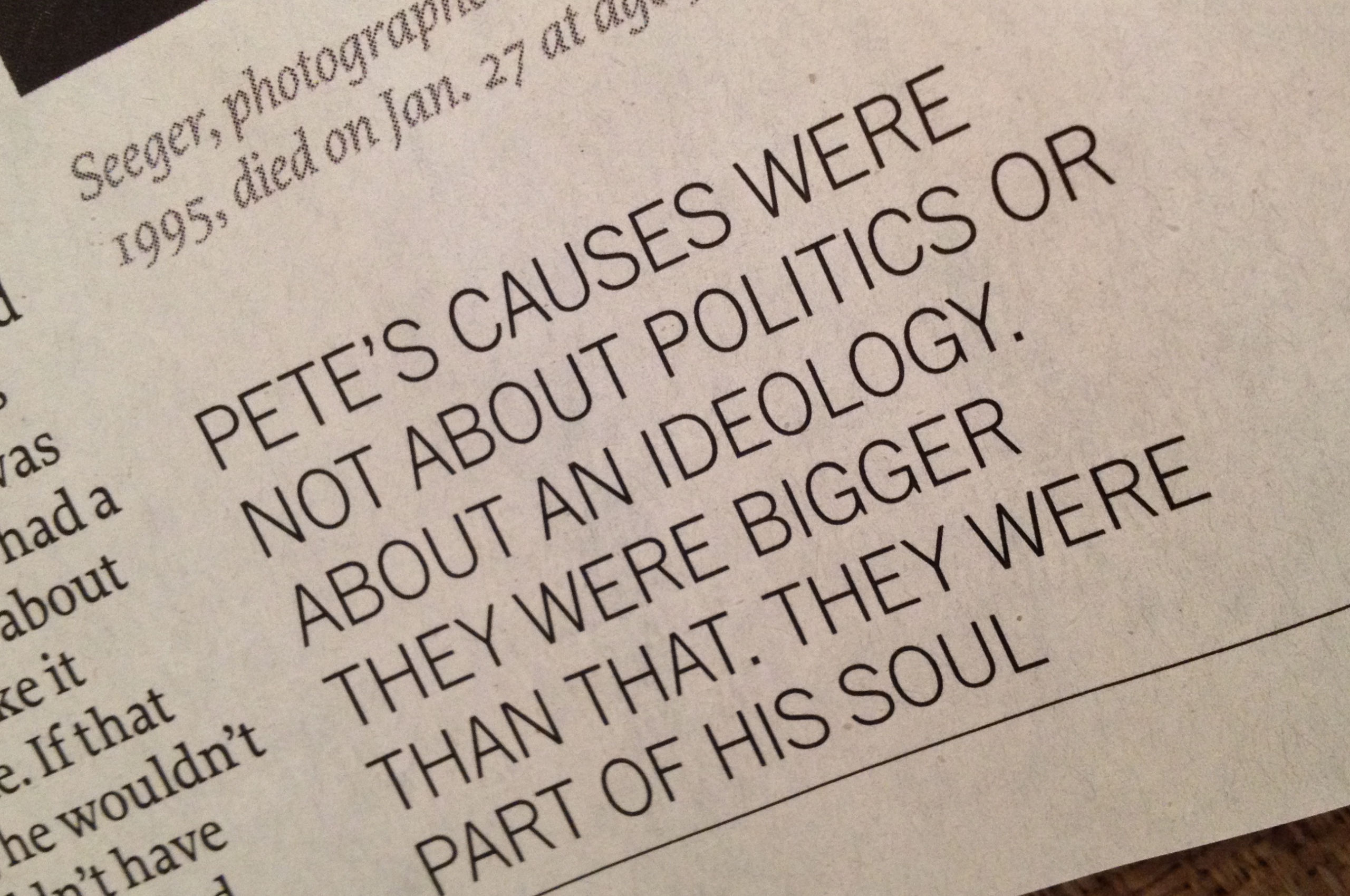 The “pulled quote” you see to the right is featured in Arlo Guthrie’s full-page tribute to the late Pete Seeger in the latest issue of TIME magazine.
The “pulled quote” you see to the right is featured in Arlo Guthrie’s full-page tribute to the late Pete Seeger in the latest issue of TIME magazine.
It’s unfortunate that this characterization is wrong. Consider this more accurate assessment from that bastion of right-wing conservatism, The Daily Beast.
… [A]s the encomiums threaten to overwhelm, it’s important to remember that Seeger, once an avowed Stalinist, was a political singer devoted to a sinister political system–a position he held long after the Soviet experiment drenched itself in blood and collapsed in ignominy. So while we wistfully recall the foot-stomping versions of This Land is Your Land, let us not forget Seeger’s musical assaults on the supposedly warmongering F.D.R. (see the justly forgotten Ballad of October 16th), featured on a record presciently released on the very day the Nazi-Soviet Pact collapsed. As Moscow instantly shifted its position from fascist accommodationism to fighting what it had previously denounced as a war for big business, Seeger and his fellow folkies in the Almanac Singers recalled the record and retooled their allegiances. It was soon replaced by a series of pro-war, pro-F.D.R. songs. Art must be used in service of the people—and is always subject to the vicissitudes of the party line.
And few, if any, obituarists have mentioned the forgotten classic Hey Zhankoye, a bizarre bit of Stalinist agitprop Seeger translated from Yiddish, recorded with the Berry Sisters, and frequently revisited during subsequent live performances. Historian Ron Radosh, a former banjo student of Seeger’s, reminds us that as Stalin cranked up his brutal post-war anti-Semitic pogroms, he was singing of a collective farm (“paradise”) where Soviet Jews lived like kings. …
… [T]he misty-eyed remembrances of Seeger demonstrate a depressing truism: slavish devotion to totalitarianism isn’t necessarily a character flaw, provided one makes sufficient reference to “the workers,” “freedom,” “peace,” and “equality.” For all of these contributions to the losing side of history, he talked enough peace, equality, and freedom to be eulogized by President Obama. Seeger, the president said, “believed in the power of community–to stand up for what’s right, speak out against what’s wrong, and move this country closer to the America he knew we could be.” Which, according to party orthodoxy, would have been an economically backward, single-ideology vassal state of the Soviet Union.
It’s hard for this observer to offer much sympathy to a lifelong supporter of Stalin.


